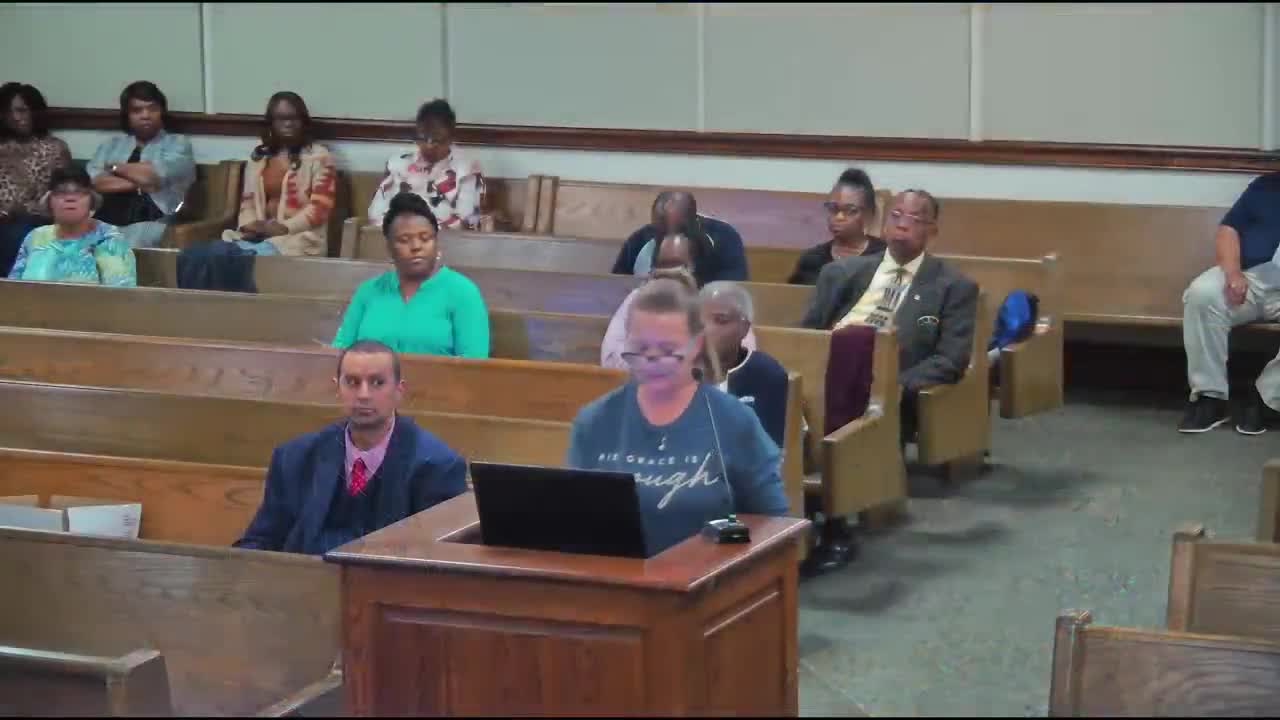Citizens press Surry County supervisors on public-comment timing, website transparency and free-speech limits
October 02, 2025 | Surry County, Virginia
This article was created by AI summarizing key points discussed. AI makes mistakes, so for full details and context, please refer to the video of the full meeting. Please report any errors so we can fix them. Report an error »

Three public speakers at the Surry County Board of Supervisors meeting urged changes to how the county handles public comment and information posted online, and one cited federal court precedent on limits to content-based restrictions in limited public forums.
Susan Covello of the Claremont District told the board she had asked two months earlier why bid information had been removed from the county website and why presentations are not posted with agendas. “The public has no chance to review or respond,” she said, and she asked who is responsible for maintaining the county website. She asked the board to consider moving the public-comment period to the end of meetings so citizens can respond after presentations are complete.
Not all speakers agreed. Shalom Pierce of the Bakers Castle District said she opposed moving public comment to the end of the meeting. She said citizens should have the opportunity to speak before decisions are made: “I am a proponent of having the comments in the front and not in the back so that we can speak on those agenda items before action is taken,” she said. Pierce also urged the board and the planning commission to coordinate on comprehensive planning and zoning to accommodate strategic industrial growth while preserving rural character.
A third speaker, identified in the meeting as Daniel Shea, addressed constitutional limits on the county’s public-comment rules. Shea said the comment period constitutes a “limited public forum” and that, while time, place and manner restrictions are permitted if content neutral, courts have repeatedly protected viewpoint-based speech. “Determining what is or isn’t relevant is inherently subjective. And when that subjectivity is used to suppress dissent or unpopular speech, it becomes a First Amendment violation,” he said.
County Attorney Ms. Perkins read the board’s public-comment rules at the start of the period, noting a three-minute limit per speaker, a prohibition on audiovisual displays and that the period “is not intended to be a question and answer period or time for dialogue” with officials. The board did not adopt any changes to the public-comment rules at the meeting; no formal action was recorded on the transcript regarding changes to posting practices or the timing of the comment period.
Speakers asked for greater transparency in posting materials ahead of meetings and for clarity on which staff member is responsible for website updates. Board members and staff responded during the meeting that audit and other reports are typically posted on the county finance page after presentation to the board and that board members may be contacted directly between meetings.
The public-comments exchange combined procedural concerns (when citizens should be allowed to speak) with substantive requests (earlier posting of presentations and bid information). The transcript records no vote or formal direction from the board to change the timing of public comment or the county’s posting practices.
Susan Covello of the Claremont District told the board she had asked two months earlier why bid information had been removed from the county website and why presentations are not posted with agendas. “The public has no chance to review or respond,” she said, and she asked who is responsible for maintaining the county website. She asked the board to consider moving the public-comment period to the end of meetings so citizens can respond after presentations are complete.
Not all speakers agreed. Shalom Pierce of the Bakers Castle District said she opposed moving public comment to the end of the meeting. She said citizens should have the opportunity to speak before decisions are made: “I am a proponent of having the comments in the front and not in the back so that we can speak on those agenda items before action is taken,” she said. Pierce also urged the board and the planning commission to coordinate on comprehensive planning and zoning to accommodate strategic industrial growth while preserving rural character.
A third speaker, identified in the meeting as Daniel Shea, addressed constitutional limits on the county’s public-comment rules. Shea said the comment period constitutes a “limited public forum” and that, while time, place and manner restrictions are permitted if content neutral, courts have repeatedly protected viewpoint-based speech. “Determining what is or isn’t relevant is inherently subjective. And when that subjectivity is used to suppress dissent or unpopular speech, it becomes a First Amendment violation,” he said.
County Attorney Ms. Perkins read the board’s public-comment rules at the start of the period, noting a three-minute limit per speaker, a prohibition on audiovisual displays and that the period “is not intended to be a question and answer period or time for dialogue” with officials. The board did not adopt any changes to the public-comment rules at the meeting; no formal action was recorded on the transcript regarding changes to posting practices or the timing of the comment period.
Speakers asked for greater transparency in posting materials ahead of meetings and for clarity on which staff member is responsible for website updates. Board members and staff responded during the meeting that audit and other reports are typically posted on the county finance page after presentation to the board and that board members may be contacted directly between meetings.
The public-comments exchange combined procedural concerns (when citizens should be allowed to speak) with substantive requests (earlier posting of presentations and bid information). The transcript records no vote or formal direction from the board to change the timing of public comment or the county’s posting practices.
View full meeting
This article is based on a recent meeting—watch the full video and explore the complete transcript for deeper insights into the discussion.
View full meeting
